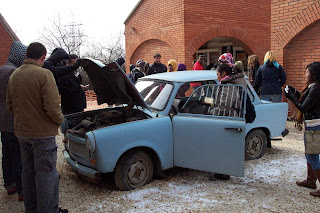
All the worries proved minor and the benefits were greater than expected. In short, going with 17 students to Hungary was wholly worth it.
Here we are checking under the hood of a Trabi (Trabant) at Memento Park, where nearly all the communist statues have been relegated, just outside Budapest.


